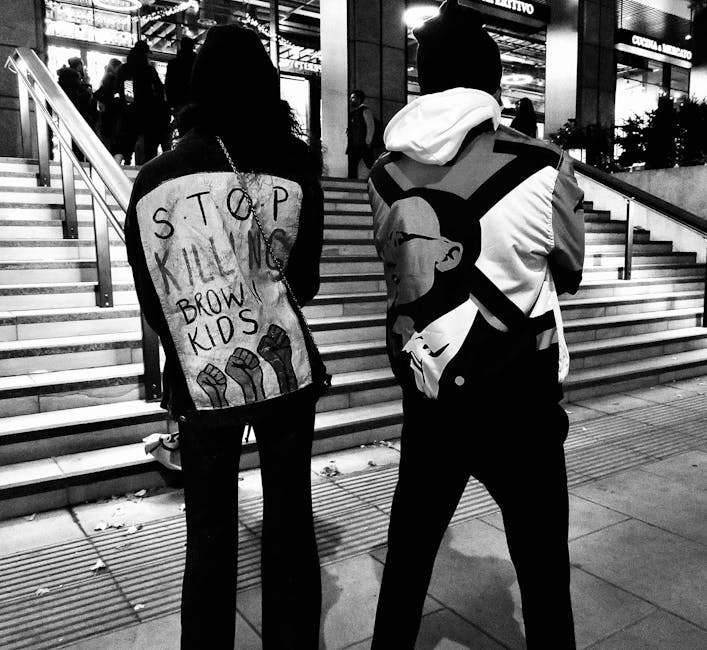It’s a funny old world, this music business. Been slogging through the trenches of online content for what feels like a thousand years, seen more trends come and go than I’ve had hot dinners. You see these new artists, all shiny and digital, then you cast your mind back to the ones who built the whole damn thing, the architects, the… well, the folks who actually laid the bricks, even if some of those bricks ended up a bit wonky. And then you get to Sean Combs. Diddy. Puff Daddy. Whatever the man’s calling himself these days, his songs stick with you, whether you like it or not.
Got a question pop up in my inbox just last week, some eager beaver, fresh out of uni probably, asking me, “What’s the deal with p diddy songs? Are they still relevant?” My immediate thought? Relevant? The word itself grates on me a bit, like chewing tin foil. Something’s either good, or it ain’t. It either hits, or it misses. Relevance is for marketing types, the ones who spend all day in meeting rooms talking about “brand synergy” and other nonsense. But, if we’re talking about the lasting power, the sheer presence of the man’s musical output, then yeah, they’re still there. Floating around in the ether. Like an old scent you can’t quite place, but it takes you back.
When the Beat Just Landed Different
You remember when “Hypnotize” dropped? That B.I.G. track? Puffy was right there, all over it, hyping it up. The beat was just… something else. It vibrated in your chest. That era, the mid-nineties, man, that was a whole vibe. Everything felt fresh, a little dangerous, a lot exciting. It wasn’t just the songs themselves, see, it was the whole package. The videos, the fashion, the attitude. Combs, he was a master of the moment. Always had been. Always will be, I reckon. He knew how to grab attention, how to make a spectacle. It wasn’t always subtle, that’s for damn sure. But it worked. For a long time, it worked like a charm.
Bad Boy Records: More Than Just a Label
I remember my first real run-in with the whole Bad Boy thing. Not just as a listener, but from the inside, seeing how the machinery worked. They were more than a record company; they were a movement. You had Bad Boy Entertainment really setting the tone back then. It wasn’t just about dropping tracks; it was about building an empire. They had that whole swagger, that New York cool.
You see, the thing about Puffy, his approach was never just about the music. It was the lifestyle he was selling. The bravado, the diamonds, the champagne. It was all part of the act. A very successful act, mind you.
People forget sometimes how much groundwork was laid by guys like him. They built these independent powerhouses that later got huge deals with the majors. Think about the discussions that went on with places like Arista Records back in the day, when they were distributing Bad Boy stuff. All those late-night calls, the money flying around. It was a different beast then. A real wild west. My god, the stories you could tell about those negotiations. Or the ones you couldn’t, more like.
The Evolution of a Sound, If You Can Call It That
Sometimes I look back at the catalogue of p diddy songs and you see a definite shift. Started off with that hard-hitting, sample-heavy sound. Think “Can’t Nobody Hold Me Down.” Pure energy. Then it mellowed a a bit, got a little more… reflective? “I’ll Be Missing You” certainly showed a different side, a vulnerability, even if it was born out of tragedy. People bought into it, you know? They felt that emotion. And that’s the trick, isn’t it? Making people feel something.
I mean, the man could sing, sort of. His rapping was never gonna win awards for lyrical complexity. But his delivery, that’s where he got you. That voice, that presence. He had a way of cutting through the noise. What was that one, “Mo Money Mo Problems”? Yeah. Still gets stuck in your head, doesn’t it? Drives you mad, but you can’t help but hum along. It’s like a commercial jingle that’s too good to ignore.
From Producer to Mogul: The Bigger Picture
When people ask, “What about his later stuff? Did he just disappear?” I always tell them to look at the bigger picture. The music was just one piece of his pie. A big piece, no doubt, the foundation even. But he moved into fashion, into liquor, into media. He was a businessman, first and foremost, who just happened to start in music. That’s what’s always been fascinating about him. He used the music as a springboard, a very loud, very public springboard, to get where he wanted to go.
You’ve got to admire the hustle. I mean, back when he was at Universal Music Group, or even later on with various distribution deals, he wasn’t just some artist turning in an album. He was a partner, a force. He understood the game, the marketing, the image. He understood how to get people talking. Sometimes, for good reasons, sometimes… well, you know.
The Undeniable Impact of P Diddy Songs on Culture
What’s truly undeniable is the sheer impact. Forget whether you like the man or his antics, the songs themselves, they shaped a generation. You hear “Bad Boy for Life” anywhere and it just evokes a certain time, a certain energy. I’ve heard it played at weddings, at sports events, even in some dodgy club in Newcastle once, back when I was over visiting family. And it always gets a reaction. People know it. They might not remember who sang what on it, but they know the hook. They know the beat. That’s power, that is.
Some might argue it was all smoke and mirrors, a carefully constructed illusion. Maybe so. A lot of show business is. But you don’t keep that up for thirty years if there’s nothing there. There had to be something real, some genuine spark. Or maybe he just had the best publicists money could buy. I wouldn’t put it past him, frankly. He always knew how to make headlines. And how to ensure his tracks, his presence, continued to generate conversation.
When They Ask, “What’s Your Favorite P Diddy Song?”
It’s a tough one, that. Like asking me my favorite day of the week. Changes with the weather, doesn’t it? But if I had to pick one that still resonates, that still makes me pause when it comes on the radio – not that I listen to the radio much anymore, who does? – it’d probably be “Victory.” The sheer epic scale of it. The strings, the choir, B.I.G.’s verses… it just felt huge. A statement. It wasn’t subtle, not by a long shot, but it didn’t need to be. It was about conquering. About winning. And that’s a theme that never really gets old, does it?
It wasn’t always a smooth ride for him, mind. A lot of bumps in the road. You’ve got these legal issues that pop up every now and then, controversies that stick to him like glue. Doesn’t seem to stop the machine, though. It just keeps on ticking over. It’s a testament to… no, scrap that. It just is. The guy keeps going. What’s that saying, “Any publicity is good publicity?” He certainly lived by that, or at least he profited from it.
The Legacy Question and the Agencies That Played a Part
So, what’s the legacy of p diddy songs? Are we talking about musical innovation? Or are we talking about the blueprint for how to build a brand, a multi-hyphenate empire, using music as the initial rocket fuel? My money’s on the latter. He was a pioneer in that regard, blurring the lines between artist, entrepreneur, and public figure.
You see it everywhere today, artists trying to replicate that model. Everyone wants to be a mogul. They might not be signing deals directly with WME (William Morris Endeavor) for film roles, or with CAA (Creative Artists Agency) for massive touring deals, but they’re thinking about it, about the big picture, about the brand. Combs was doing that decades ago. He was the original influencer, really, before that word became as diluted as cheap whiskey. He knew how to leverage his music, his persona, to get into every aspect of popular culture. That’s the real insight. He understood the game. And he played it better than almost anyone for a good long while.
FAQs, you say? People always wanna know the same things. Like, did he write all his own stuff? Did he really produce all those beats?
Well, what about that? Did he write every lyric? No, come on. That’s a silly question. Most of the artists out there, especially in that era, had songwriters and co-writers. He was a visionary though, a curator. He put the right people in the room. He had the ear for a hit. He knew what sounded good. That’s producing, that is. It ain’t about twisting every knob yourself.
What’s his most successful single? Define successful. Is it sales? Chart position? Cultural impact? “I’ll Be Missing You” probably wins on sheer ubiquity and emotional resonance. It sold a boatload. But “Mo Money Mo Problems” or “Can’t Nobody Hold Me Down” arguably had a bigger impact on the sound of hip hop at the time. It depends on how you measure it, doesn’t it?
Is he still making music? Yeah, now and again. He drops things. Collaborates. It’s not the same flurry of activity as the nineties, obviously. He’s got other fish to fry. But he hasn’t completely hung up the mic, no. And when he does, people usually notice.
What about the samples? Didn’t he use a lot of samples? Oh, absolutely. That was a huge part of the Bad Boy sound. Taking classic funk and soul tracks, chopping them up, adding a beat. It was brilliant. Sometimes a bit too much for the original artists, I reckon, but it made for iconic sounds. It was his signature, for a while there. That’s how a lot of us first heard some of those old tunes, actually. It was a whole masterclass in how to repurpose, reuse, make something new out of something old.
So yeah, p diddy songs. They ain’t going anywhere. They’re woven into the fabric of popular music. Good, bad, or indifferent. They’re just… there. And likely will be for a good while yet. Some things just have a way of sticking around, whether you planned it or not.












